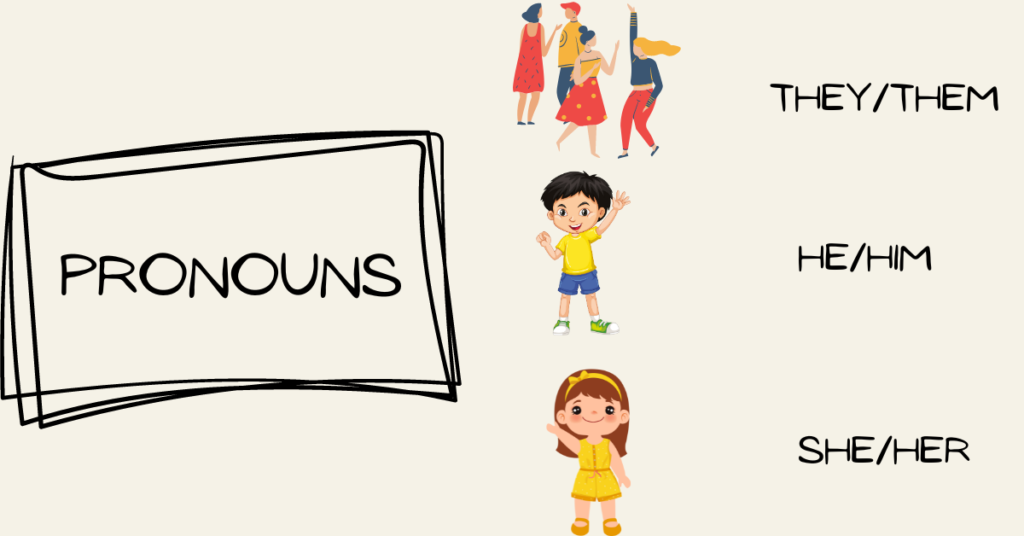
Pronouns
- Ek (I)
Example sentence: Ek gaan vandag na die winkel. (I am going to the store today.)
- Jy (You – singular)
Example sentence: Jy is baie slim. (You are very smart.)
- Hy (He)
Example sentence: Hy het sy eie motor. (He has his own car.)
- Sy (She)
Example sentence: Sy is baie talentvol. (She is very talented.)
- Dit (It)
Example sentence: Dit is ‘n mooi blom. (It is a beautiful flower.)
- Ons (We)
Example sentence: Ons gaan saam na die konsert. (We are going to the concert together.)
- Julle (You – plural)
Example sentence: Julle moet hard werk vir sukses. (You all need to work hard for success.)
- Hulle (They)
Example sentence: Hulle is vriendelik en behulpsaam. (They are friendly and helpful.)
Possessive Pronouns
- My (My)
Example sentence: Hier is my boek. (Here is my book.)
- Jou (Your)
Example sentence: Ek hou van jou trui. (I like your sweater.)
- Sy (His/Her)
Example sentence: Die hond is syne. (The dog is his/hers.)
- Ons (Our)
Example sentence: Ons huis is groot. (Our house is big.)
- Julle (Your – plural)
Example sentence: Julle kar is pragtig. (Your car is beautiful.)
- Hulle (Their)
Example sentence: Hulle kinders is talentvol. (Their children are talented.)
Exercise
- Create your own sentence(s) using the vocab.
Mini-dialogue
Person A: Ek het my boek by die huis vergeet. Kan jy joune met my deel?
(I forgot my book at home. Can you share yours with me?)
Person B: Natuurlik! Hier is joune. Ek het myne klaar gelees. (Of course! Here is yours. I have already read mine.)
Person A: Baie dankie! Jou hulp word waardeer.
(Thank you very much! Your help is appreciated.)
Person B: Geen probleem nie. Ons help mekaar altyd.
(No problem at all. We always help each other.)
Exercise
- Create your own dialouge(s) using the vocab.